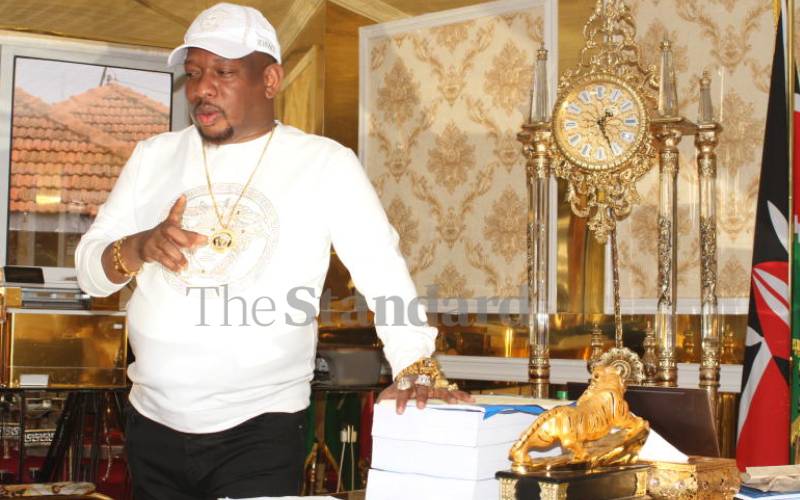
Former Nairobi Governor Mike Sonko at his private office, Nairobi. November 23, 2021. [Collins Kweyu, Standard]
Former Nairobi Governor Mike Sonko's recent online activities have raised intense debate among Kenyans about the legal regime of what has come to be termed as #SonkoLeaks and the legality of secretly recording public figures. The saga began with a video clip released by Sonko purporting to show a judge and his relative perpetrating corruption. Other recordings have touched on a senior county official and a prominent city lawyer.